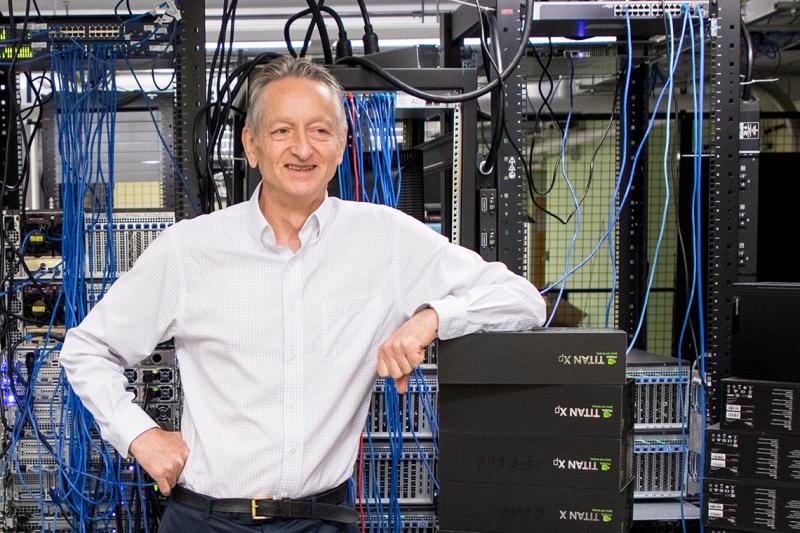March 31, 2023 | Campus
CBS News travels to Toronto to explore the future of AI

Deep learning pioneer Geoffrey Hinton is among the U of T-connected experts who spoke to CBS News about the past, present and future of artificial intelligence. Photo by Johnny Guatto.
Calling Toronto “one of the world’s leading AI research hubs,” CBS News recently spoke to several of the field’s luminaries – all connected to the University of Toronto – about the potential impact of AI-powered chatbot technologies such as ChatGPT.
Geoffrey Hinton (Hon DSc 2021), a University Professor Emeritus in the department of computer science in the Faculty of Arts & Science, spoke to CBS News reporter Brook Silva-Braga about the past, present and future of AI, saying the technology is “comparable in scale to the industrial revolution or electricity or maybe the wheel.”
Hinton, who is also affiliated with Google, has mentored many students including U of T alumni Nick Frosst (BSc 2016) co-founder of AI language processing company Cohere, and Ilya Sutskever (BSc 2005 UC, MSc 2007, PhD 2013) co-founder of OpenAI, the company that developed ChatGPT.
“In the context of large language models, we get a huge amount of text and then we show it a few words and we get it to predict the next word,” Frosst told CBS. “This simple technique turns out to give you something very useful and very powerful.”
Recognized for making key contributions to the tech and AI ecosystem, U of T is also home to the Schwartz Reisman Institute for Technology and Society – created to help guide the development and implementation of AI and other transformational technologies by taking into account social, ethical and other considerations.
Just how these powerful technologies are managed is an issue people should be thinking about now, Hinton said, pointing out that the development of artificial general intelligence, a machine that could exhibit human levels of intelligence, is progressing faster than we think.
“Until quite recently I used to think it might be 20 to 50 years before we have general purpose AI,” he said. “Now I think it might be 20 years or less.”

